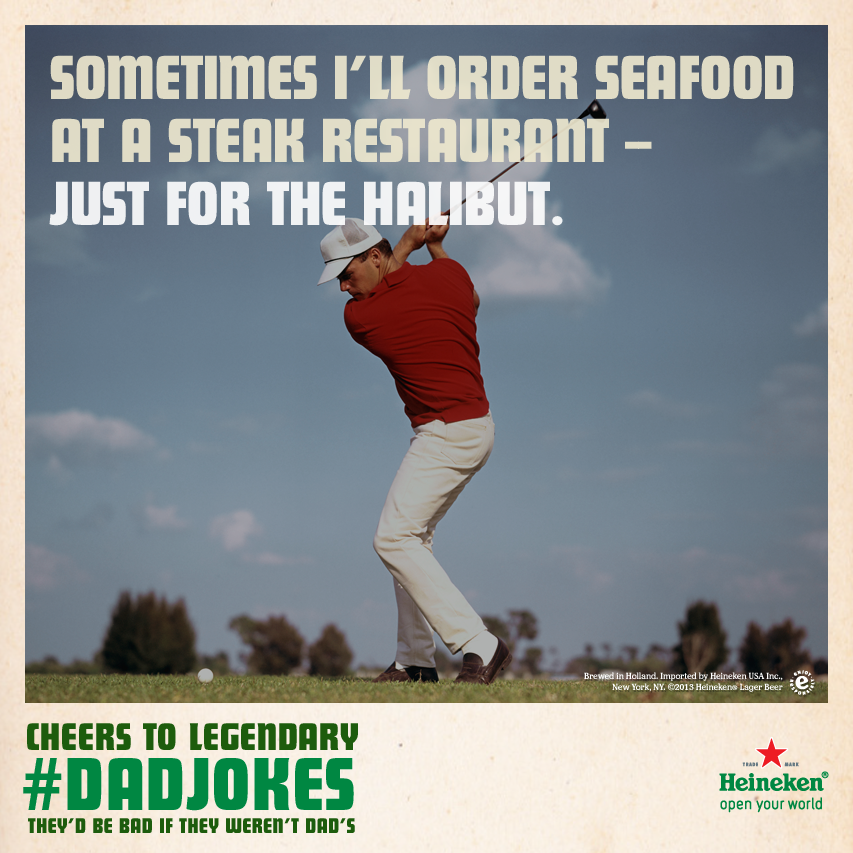Secure your place at the Digiday Media Buying Summit in Nashville, March 2-4

In honor of Father’s Day this Sunday, Heineken is celebrating dads and their corny but endearing brand of dad humor.
Heineken, with the help of Wieden + Kennedy, is asking people to tweet their favorite dad-style jokes @Heineken_US using the hashtag #dadjokes. You know, those cheesy one-liners and puns that you kind of just have to pity-laugh at. Heinken will pick its favorite jokes and turn them into meme-style image macros by pairing the user-submitted jokes with vintage dad images. Heineken will also create and share some of its own dad jokes on Facebook, Twitter and Instagram.
Along with retweeting the user-submitted jokes, Heineken will also collect them all on a dedicated #dadjokes Tumblr, which will go live this weekend.
Dorky dads, cheesy family photos and throwback dad pics (remember the Dads Are the Original Hipsters Tumblr?) have all been popular Web trends at one time or another, so Heineken is definitely touching on something that is in tune with popular Web culture. Usually brands’ attempts to get involved in a holiday via social media means really lame, cheesy tweets, but this campaign uses cheesiness intentionally in a way that makes sense for Father’s Day. See some of Heineken’s cheesy #dadjokes below.
More in Marketing

Thrive Market’s Amina Pasha believes brands that focus on trust will win in an AI-first world
Amina Pasha, CMO at Thrive Market, believes building trust can help brands differentiate themselves.

Despite flight to fame, celeb talent isn’t as sure a bet as CMOs think
Brands are leaning more heavily on celebrity talent in advertising. Marketers see guaranteed wins in working with big names, but there are hidden risks.

With AI backlash building, marketers reconsider their approach
With AI hype giving way to skepticism, advertisers are reassessing how the technology fits into their workflows and brand positioning.







